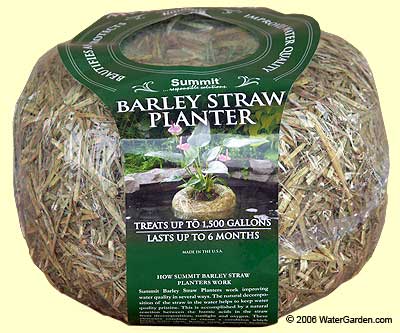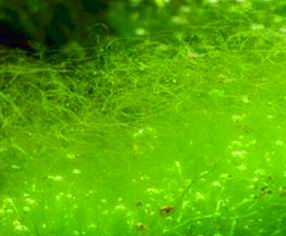Hydrogen Peroxide In The Reef Tank
Hydrogen Peroxide is a combination of the elements hydrogen and oxygen. Peroxide is an oxidizer which removes electrons from the reactant it is exposed to. How can this benefit a reef aquarist? The first significant reports of hydrogen peroxide as an algae inhibitor was from England during the 1990’s. Barley straw used in waterways in England showed significantly less algae growth. When barley straw breaks down it releases chemicals. One of the decomposition chemicals released is hydrogen peroxide. This was the beginning of how hydrogen peroxide has become a get out of jail free card for
aquarist with significant algae problems.

In the reef hydrogen peroxide acts similarly to the barley straw. When applied directly to an algae it breaks it down killing the algae off. If you watch hydrogen peroxide being applied you can see the release of bubble, Which is the hydrogen peroxide reacting with the algae. This is a great way of killing unwanted algae off of frag plugs or rubble rock. It is a much faster why of destroying these unwanted pest as opposed to plucking the algae away. It must be used with caution though. Many corals seem resilient to it such as zoas. However some of the more fragile corals such as Acropora die back when exposed too long. Dipping of many SPS can be achieved with short dips less than 30 seconds but be aware this is a risk. Using this direct application method can kill unwanted algae such as byropsis and hair algae. The following is a video made to show hydrogen peroxides effect on a frag covered unwanted algae.
http://www.youtube.com/watch?v=h4ITUzifk_4 (video made by Justin Credabel I own no rights to it) Hydrogen peroxide dips can be used on whole rocks to eliminate large patches of algae. This can be achieved by removing the rock during a water change, applying the Hydrogen Peroxide to the rock, and rinsing the rock in the previously removed water. This will allow more exposure to the Hydrogen peroxide then if you applied in the tank in very small doses.
Another use for hydrogen peroxide in the tank is in the form of dosing to eliminate cyanobacteria and dinoflagellates. These simple organisms seem to be eliminated through careful and minimal dosing of hydrogen peroxide. The dosing rule of thumb tends to be 1 ml per 10 gallons of water.(Applies to 3% only) The Peroxide should be dosed daily until the problem has been dealt with. This seems to work well for many hobbyists as it eliminates the problem algae and in some cases improves water clarity. Dosing in all cases must be carefully monitored any negative effects must be watched out for and emergency water changes on stand by are recommended. Although hydrogen peroxide is strong against these nuisance algae and bacteria, The problem which is leading to the growth of these unwanted organisms should be dealt with, As opposed to solely using hydrogen peroxide to eliminate your problems. Keeping up with water changes using 0 TDS water from a reverse osmosis unit can help greatly.
 (Hair algae which can be eliminated with hydrogen peroxide.)
(Hair algae which can be eliminated with hydrogen peroxide.)
Hydrogen peroxide when it comes down to it is a very useful chemical for the home aquaria. With proper applications it can aid the hobbyist in reducing unwanted algae and keep a tank looking clean.
Cited source
Large Barley Straw Planter for Ponds & Water Gardens
http://www.btny.purdue.edu/pubs/apm/apm-1-w.pdf
Hydrogen Peroxide (H2O2) - Momentum98.com
Hydrogen Peroxide is a combination of the elements hydrogen and oxygen. Peroxide is an oxidizer which removes electrons from the reactant it is exposed to. How can this benefit a reef aquarist? The first significant reports of hydrogen peroxide as an algae inhibitor was from England during the 1990’s. Barley straw used in waterways in England showed significantly less algae growth. When barley straw breaks down it releases chemicals. One of the decomposition chemicals released is hydrogen peroxide. This was the beginning of how hydrogen peroxide has become a get out of jail free card for
aquarist with significant algae problems.

In the reef hydrogen peroxide acts similarly to the barley straw. When applied directly to an algae it breaks it down killing the algae off. If you watch hydrogen peroxide being applied you can see the release of bubble, Which is the hydrogen peroxide reacting with the algae. This is a great way of killing unwanted algae off of frag plugs or rubble rock. It is a much faster why of destroying these unwanted pest as opposed to plucking the algae away. It must be used with caution though. Many corals seem resilient to it such as zoas. However some of the more fragile corals such as Acropora die back when exposed too long. Dipping of many SPS can be achieved with short dips less than 30 seconds but be aware this is a risk. Using this direct application method can kill unwanted algae such as byropsis and hair algae. The following is a video made to show hydrogen peroxides effect on a frag covered unwanted algae.
http://www.youtube.com/watch?v=h4ITUzifk_4 (video made by Justin Credabel I own no rights to it) Hydrogen peroxide dips can be used on whole rocks to eliminate large patches of algae. This can be achieved by removing the rock during a water change, applying the Hydrogen Peroxide to the rock, and rinsing the rock in the previously removed water. This will allow more exposure to the Hydrogen peroxide then if you applied in the tank in very small doses.
Another use for hydrogen peroxide in the tank is in the form of dosing to eliminate cyanobacteria and dinoflagellates. These simple organisms seem to be eliminated through careful and minimal dosing of hydrogen peroxide. The dosing rule of thumb tends to be 1 ml per 10 gallons of water.(Applies to 3% only) The Peroxide should be dosed daily until the problem has been dealt with. This seems to work well for many hobbyists as it eliminates the problem algae and in some cases improves water clarity. Dosing in all cases must be carefully monitored any negative effects must be watched out for and emergency water changes on stand by are recommended. Although hydrogen peroxide is strong against these nuisance algae and bacteria, The problem which is leading to the growth of these unwanted organisms should be dealt with, As opposed to solely using hydrogen peroxide to eliminate your problems. Keeping up with water changes using 0 TDS water from a reverse osmosis unit can help greatly.

Hydrogen peroxide when it comes down to it is a very useful chemical for the home aquaria. With proper applications it can aid the hobbyist in reducing unwanted algae and keep a tank looking clean.
Cited source
Large Barley Straw Planter for Ponds & Water Gardens
http://www.btny.purdue.edu/pubs/apm/apm-1-w.pdf
Hydrogen Peroxide (H2O2) - Momentum98.com
Last edited by a moderator:


















